Please Say The Dailey
Please Say The Dailey is hosted by Vanisha R. Dailey, a sociologist and cultural commentator exploring queer identity, community, and the social systems that shape everyday life. Through research-informed conversation and cultural analysis, the show examines sexuality, digital culture, sustainability, and the norms we take for granted—bridging lived experience and sociological insight.
Please Say The Dailey
The Confusion with Identity within the Black American Community
In this episode, Vanisha R. Dailey explores the complexities of race, ethnicity, and nationality, sharing personal experiences and insights. She discusses the confusion surrounding these concepts, the impact of misinformation, and the significance of identity in the context of American culture. The conversation also touches on the importance of understanding indigenous identity and the historical context of racial classifications.
What Native Land Do You Live On?
Race
Thank you for visiting!
Vanisha R. Dailey, Please Say The Dailey
SayTheDailey@gmail.com
Become A Supporter Of The Show:
https://www.buzzsprout.com/2452408/support
Instagram: @VanishaRDailey
Love the music playing on my podcast? Check out the talented @StrBabyJackson on Instagram and thank me later!
- Hey hey y’all! Welcome back to yet another episode of please say the Dailey I am your host Vanisha R. Dailey and this is episode eight! I hope you all are well out there
- I can’t believe we are nearing the end of May, I celebrated my birthday on May 8 and as a birthday gift to myself I went to see Durand Bernarr in concert and it was absolutely phenomenal. I was able to spend some time with a few of my friends in Atlanta that I hadn’t seen in many years so that was great. I know I didn’t get to all of you, but hopefully I will be back in the area in the very near future.
- I appreciate you all for continuing to tune in! Thus far, I have listeners from 17 different countries and 87 cities across the United States— so let’s keep running up them numbers! Go ahead and make sure that you are following and/or subscribing to my podcast (depending upon which platform youre on ) so that you can stay up-to-date with all the new episodes. And please don’t be shy about rating and reviewing my podcast on Apple podcasts and Spotify as well. Let’s get into ittt
- If I were to ask you, what is your race and ethnicity would you know how to answer? Would you know what constitutes to be an actual racial category and/or ethnicity to identify yourself? Or what about your nationality? If I asked you, what is your nationality? Would you know how to confidently answer that question?
- I have had so many interactions with people on social media that center race, ethnicity, and nationality that have really let me know that a lot of people are quite confused on how these categories differ from one another— or even how they (themselves) fit into these categories.
- If you are new here, I have a BA in sociology, which heavily centers society, social relationships and interactions—on a micro scale and macro scale. It’s the scientific study of ones identity, and how they move in society within social structures, as well as the societal impacts on specific groups of people.
- So let’s touch on a few different situations in this episode that focus around the topics of race, ethnicity, and nationality, so that when topics like these come about, we are able to better understand our placement within them.
- OK your race is directly linked to the color of your skin, and other physical features like hair texture, and facial features. If you listen to my very first episode, I talked about how Europeans created racial hierarchy so you can go back and listen to that if you’re interested. But Examples of race from the United States Census Bureau are White, Black or African American, American Indian or Alaska Native, Asian, and Native Hawaiian or Other Pacific Islander.
- Your ethnicity is linked to your culture, your ancestry— as in your DNA meaning this is biological, and can be scientifically proven and I have to say this, because we know how y’all loved denying DNA testing despite them being used to prove whether or not someone is the parent of a child.. but I digress 🙃— ethnicity is also shared cultural, norms like religion, language, history.
- A person’s nationality is commonly where they were born, but because that isn’t always the case (like for myself) the best way to know what your nationality is, is by looking at your birth certificate because a birth certificate will include your citizenship and if you are not a non-citizen national, your passport will indicate your citizenship as well.
- A few days ago, I posted on threads asking: Why do foreigners almost always speak in a very generalized way about American people? They really think (the ones who speak like this) that we are all the same despite being a country with such vast diversity… that’s bizarre.
- The post did not go over well, but I’m not going to lie, I was actually very surprised at what people predominantly found to be offensive about my post— the first thing being that I used the word “foreigners” to refer to other groups of people who are not US citizens, and the second one being that I used the word Americans in reference to citizens here in the states! When I tell y’all, I never knew that people were bothered by these terms until now. So let’s address both of them.
- Firstly, the word foreigner from Webster is defined as a noun, and it is a person belonging to or owning allegiance to a foreign country and a person who is not native to a place or community. Even on dictionary.com it is defined as a person from outside of one’s community
- So, how I used the word was correct, but that’s definitely not how those people felt about it even when I showed them the same exact definitions. One woman said that I was centering Americans, which “othered”everyone else and focused the attention to Americans—to which I replied to her well yes because this conversation is about American people. I was intentionally centering American people, because This discussion is from my own point of view as an American person.
- Alright here we go with the sociological talk, I fully believe that because of the political space that we’ve been in for the past few years now, the word foreigner has now become a hot button word that ignites a strong reaction from people because of what’s being portrayed in the media … if you catch my drift. Other words that people get riled up about? Woke, LGBTQ, trans people, feminism, DEI etc. I’ve been trying to be a little mindful of how hard I go on some of these topics, because of how the current administration has been targeting certain groups of people, and as we’ve seen from numerous examples, American citizens are not off-limits. I will always be vocal, but this is me just skimming the surface a bit to clarify my point here.
- how often do we hear discussions about foreigners where it’s actually positive and void of controversy? These touchy discussions about people who are not US citizens has clearly changed how people hear the word foreigner when it’s spoken by an American person, because of the negative connotations that are often present in the messages.
- A common point that I saw mentioned in the comments under my post was that it was arrogant of me to mention foreigners, which is ironic because nothing about my original post had that tone to it—this is a perfect example of implicit bias, because how dare I as an American person call others out for perpetuating xenophobic rhetoric?, they were really trying to silence me and invalidate my experience.— like I’m not really sure why we playing stupid all of a sudden, as though we do not see the comments on social media, and how Americans are often the butt of jokes from other countries in the media.
- Most US citizens are well aware of stereotypes about Americans, we are ignorant, stupid, and elitist— we are violent people, we like guns…
- And don’t get me wrong, I know that people from all over the world carry stereotypes about people from other places, but this current conversation IS ABOUT AMERICAN PEOPLE— let’s stay on topic cause i’m sure most would agree that Americans get this sort of treatment the worst from the MAJORITY of the world. I am not saying that other Nationalities do not experience hate, because that would be very far from the truth, however, in every corner of the world, people are often speaking in such demeaning, hateful ways about Americans, and we’ve always had this popularity likely because of our country’s business deals and politics. But when we speak about it, the response is always, but you all do it to us which completely ignores the issue and shifts focus.
- I fully understand what’s happening within the media and in politics, but these comments show us that even though I am a black woman who is also American, people from other countries will still project those biases and stereotypes one to me because in those peoples’ eyes, they have already made their minds made up about who US citizens are and what our characters are like. Never mind that we come from a vast array of backgrounds… it’s irrelevant because this is what’s being pushed in the media and people from other countries have assumed it to be true for all American people.
- The last thing that I would say about this foreign discussion: If I were to snap my fingers and I randomly landed in a classroom in some Asian country, and I were the only Black American woman, they would speak to me and refer to me as a foreigner… and let’s be honest, even if I spoke the language without an accent, and adopted their cultural norms—I would still be a foreigner in their eyes regardless of me being within their culture or not. All that said, all of us are foreign in some shape or form, depending upon who is speaking.
- As mentioned before, people were also offended because I referred to us as “Americans”— and I already knew exactly where they were going with this… the Americas encompass many different countries— I am well aware of this, there is North America, Central America, and South America, along with many islands, however, citizens of the United States are the only ones who are labeled as Americans. The way these people were so mad about me using that word was so fascinating, because it’s not like we as in the current citizens picked that word for ourselves. The word American was here way before I was even born, so just like I said to one of the people in my comments, “if you mad about US citizens being called Americans, be mad at the colonizers that created it, not me.”
- One guy continued to tell that US citizens are the only ones that refer to ourselves as being American. And I asked him are you sure about that? Because I was actually born in a different country and on my birth certificate under my nationality it says American…. oh OK.
- NEXT!
- And that fact is something that often gets folks in a chokehold, because then of course they want to tell me that I am not actually an American person just because I was born in another country. These topics get so confusing for people and rightfully so, I can understand why that happens, but how you gonna tell me what my nationality is? That’s what I want to know. I have never been a citizen of another country despite being born elsewhere, I just want you all to Google Earth, right citizenship. That’s where I fall in. When you have a parent that is in the military and they are deployed in a different country, that’s often what happens, or at least in my situation. And I’m sure it can vary from country to country, but I am not a naturalized citizen. I am not a first generation person like someone else mentioned. I thought that was absolutely hilarious. I was born an American person to American parents, we are US citizens, and that’s it.
- TRANSITION
- The amount of misinformation that I see being spread on social media is highly concerning. I really need to know who has been telling African-Americans, or black Americans that they are indigenous Americans to the United States? Are we not aware of who is considered to be indigenous? That would be Native American people. so when you say you are “indigenous” as an African-American person, not only is that completely inaccurate, but you are simultaneously stepping on the toes of countless Native American tribes, who were here well before Africans were taken from predominantly West Africa during the transatlantic slave trade. Words have meaning, so let’s identify what the word indigenous means by definition.
- Indigenous is used to refer to, or relating to, the peoplewho originally lived in a place, ratherthan people who moved there from somewhere else
- These sorts of discussions really draw attention to how severely undereducated we are as a population, because the types of comments that I see from black folks when we are talking about black identity honestly just makes me want to scream and bang my head against the wall , because those people are omitting the actual documented history.. instead, they’d prefer to believe in some wild conspiracy theories.
- I learn something new every time these discussions come about—cause the hoteps and Moors be real quick to come with the “enlightenment” without legitimate fact-based sources to back up what they believe to be true. If you don’t know who these sub communities are, you’ll have to research at your own risk because I honestly do not have the mental capacity for it right now, case in point…
- like did yall know that there are some black folks who believe that the transatlantic slave trade never actually happened? They believe that black people were legitimately here in America the entire time— some even alleged that they are intertwined with Native American people, because by their thinking, Native Americans can be black as well.
- And this is where racial identity is absolutely crucial, because yes, there are some native American people who are highly Melanated, and just as dark as myself, but that does not make them racially black through the social construct of racial categorization.
- As I’m thinking about this, most non-white groups of people have an array of varying skin colors from dark to light; people from India, Bangladesh, and Sri Lanka just name a few can be dark skinned like myself, and believe it or not sometimes even darker—but that does not make them necessarily “black”. They are still south Asian people— but isn’t it funny that despite the range of skintones, this is a group that would call themselves brown instead of black and there is a reason why that is.
- I stated by genome.gov
- “Race was constructed as a hierarchal human-grouping system, generating racial classifications to identify, distinguish and marginalize some groups across nations, regions and the world. Race divides human populations into groups often based on physical appearance, social factors and cultural backgrounds.” Things like facial features, hair texture, and skin tone are just some of the ways that people fit into these groups.
- The label black in the United States is extremely culturally significant to individuals that are descendants of sub-Saharan African people. Black was a term that evolved overtime throughout American history, and was ultimately birthed from political and social movements to encourage Black people to embrace their identity and step away from outdated demeaning words like Negro and colored.
- the black power movement of the 1960s was behind this. Remember James Brown’s song “say it loud I’m black and I’m proud”? That came out in 1968 during this exact period because they were tired of being mistreated because of their skin color.
- This was a direct call to action to change the damaged system that completely disenfranchised Black people in America through racial segregation and discrimination.
- So considering the history and journey of the reclamation of being black— a person self identifying as being black is obviously strongly, tied to black culture and experiences.
- A person on threads asked black people “do you prefer the term black American or African-American?” and one woman said that she did not subscribe to either of those terms, because she is indigenous… and in my mind, when I hear indigenous specifically to this conversation in reference to black Americans and or African- Americans— I would assume that you are a black person who is also indigenous. Which can totally be a true thing if you have one parent who is African-American and the other is Native American; that would be an accurate description. But if you are someone like myself that is African-American, as in both of your parents are black and you are a descendent of African people that were stolen from Africa… you are not indigenous to this country. Black people are in the United States because of colonialism, so that fact alone completely eliminates the possibility of Black people ever being indigenous to this country. A person does not magically become indigenous to a region just because they’ve been there for multiple generations, it has to do with who was there first.
- Every bit of this land was and still is the land of indigenous Native American people… in which by the way I live on the:
- If you are unfamiliar of which native land you live on, I will add in a link below so that you can also name the tribes of your area.
- Let me add in this sidenote before I continue discussing black folks: please know that native Americans and Indians are two vastly different groups of people. There are still some groups that actually self identify as American Indian, but in sociology, we are taught that it is not the best word— so we often use the umbrella term Native American to refer to indigenous groups across the Americas if we are not naming their specific tribe. Native Americans are indigenous to the Americas while Indian people are from India in South Asia.
- Moving right along—When the terms African-American and Black American enter the chat, there is always this major disconnect with a lot of Black people because they often prefer to be called one of those terms over the other — better yet, many don’t like being called African-American at all and it’s because of our complex history within this country. Their rebuttal is always that they were born in America and that they have no direct ties to the continent of Africa being that their culture was birthed through American society— but the way that I see it, and the historical nature of it is that if we were to take a DNA test, it would tell us that our ancestors are African, once again, that is based in biology,— it can be scientifically proven, and of course, historically proven as well. Anthropologist have found fossilized evidence, they’ve done genetic studies, and even comparative anatomy to show evolution trends, —So why is it so difficult for us to embrace something that is intertwined with our DNA? As for myself, I use both terms to describe myself, they are both my identity markers and both accurate descriptors. And although I don’t judge anyone that chooses one term over the other, I just can’t grasp the concept of trying to completely disassociate oneself from having African roots. You can prefer to be called black American if you want— that is totally your prerogative, but please don’t be out here thinking that you are somehow not African through your bloodline. We know that African-Americans typically have mixed ancestry, but the dominant ethnic group for most of us will be an African ethnicity whether you like it or not.
- Just know that if you are someone that denies your blackness—or African roots as a black descendent of ancestors that were a part of American chattel slavery… you anti-black and that’s on coonery.
- TRANSITION
- Ayyyye and that’s a wrap! Thank you all for tuning into another episode of please say the daily, remember to scroll down and check out the description box below for all links mentioned in this episode. If you are enjoying the content that I am sharing here on this platform and you would like to hear more of it, consider becoming a sponsor for this podcast so that I can keep creating the content that you enjoy. I appreciate your support, be sure to subscribe to this podcast to stay up-to-date with all the new episodes. I hope you all enjoy the rest of your week! Until next time
Podcasts we love
Check out these other fine podcasts recommended by us, not an algorithm.
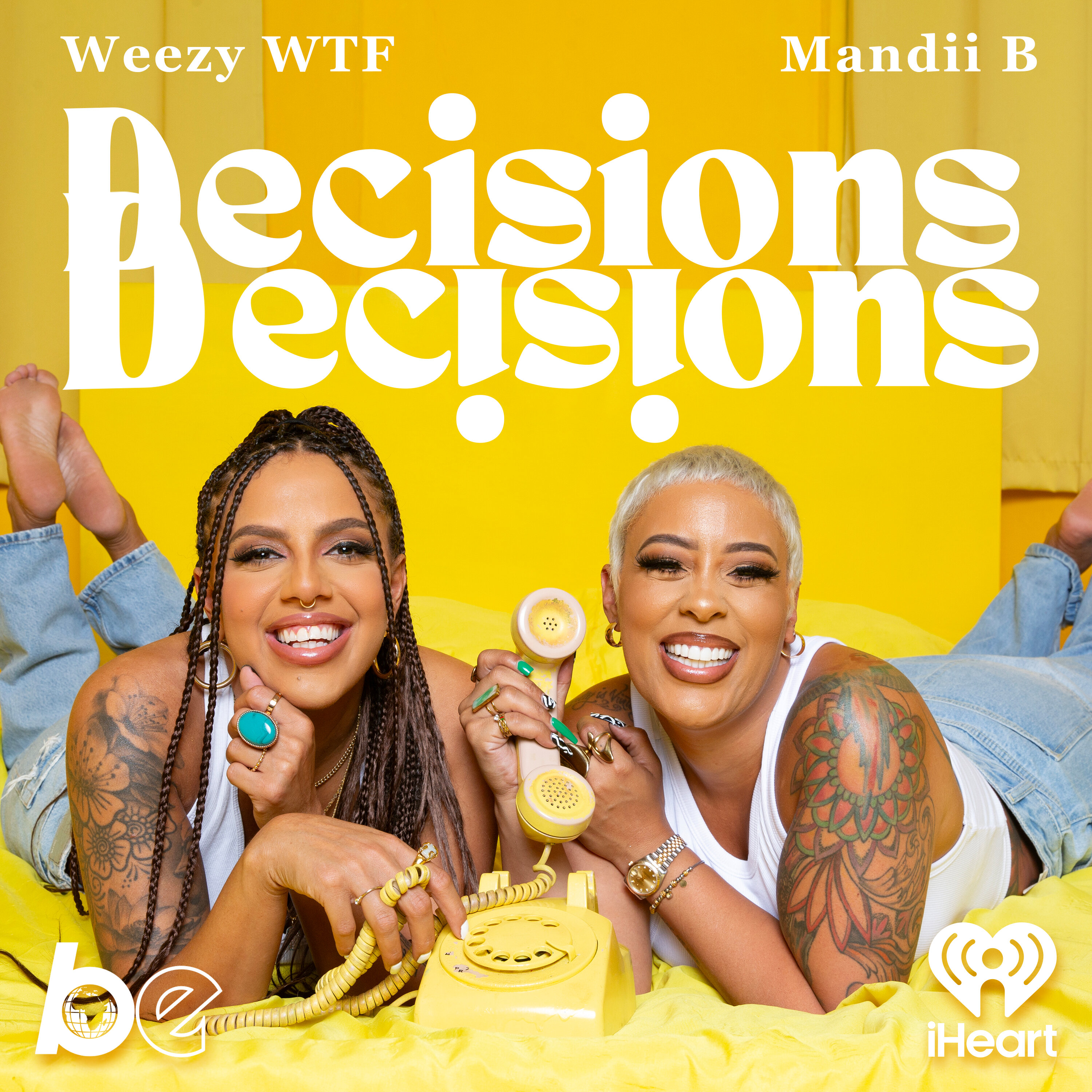
Decisions, Decisions
The Black Effect and iHeartPodcasts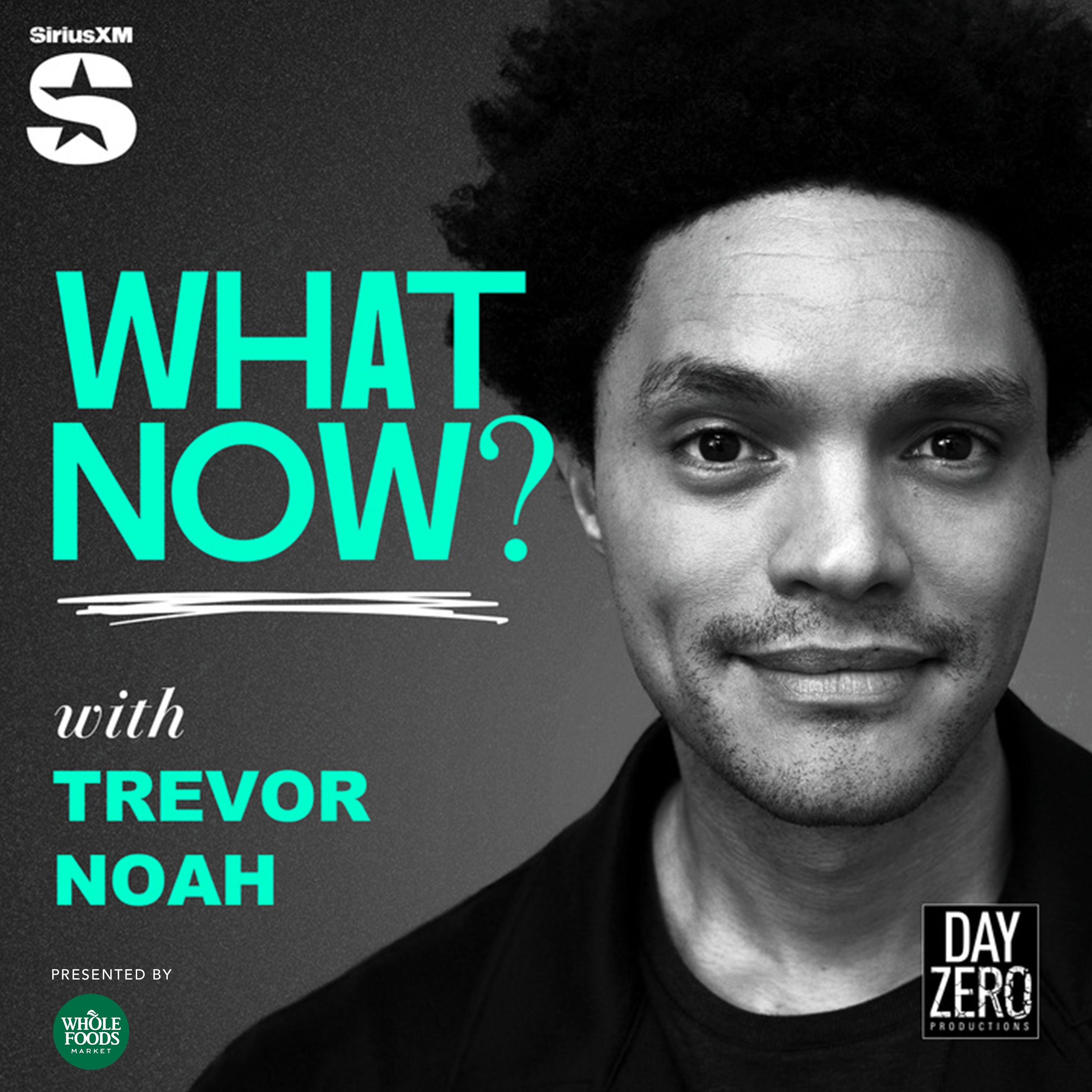
What Now? with Trevor Noah
Trevor Noah
SPOON SPACE
Sunny Dee
LOVERS by shan
LOVERS by shan
Late Night With Ler And Lionel
L&L Network
justUS
justUS Productions
The Mel Robbins Podcast
Mel Robbins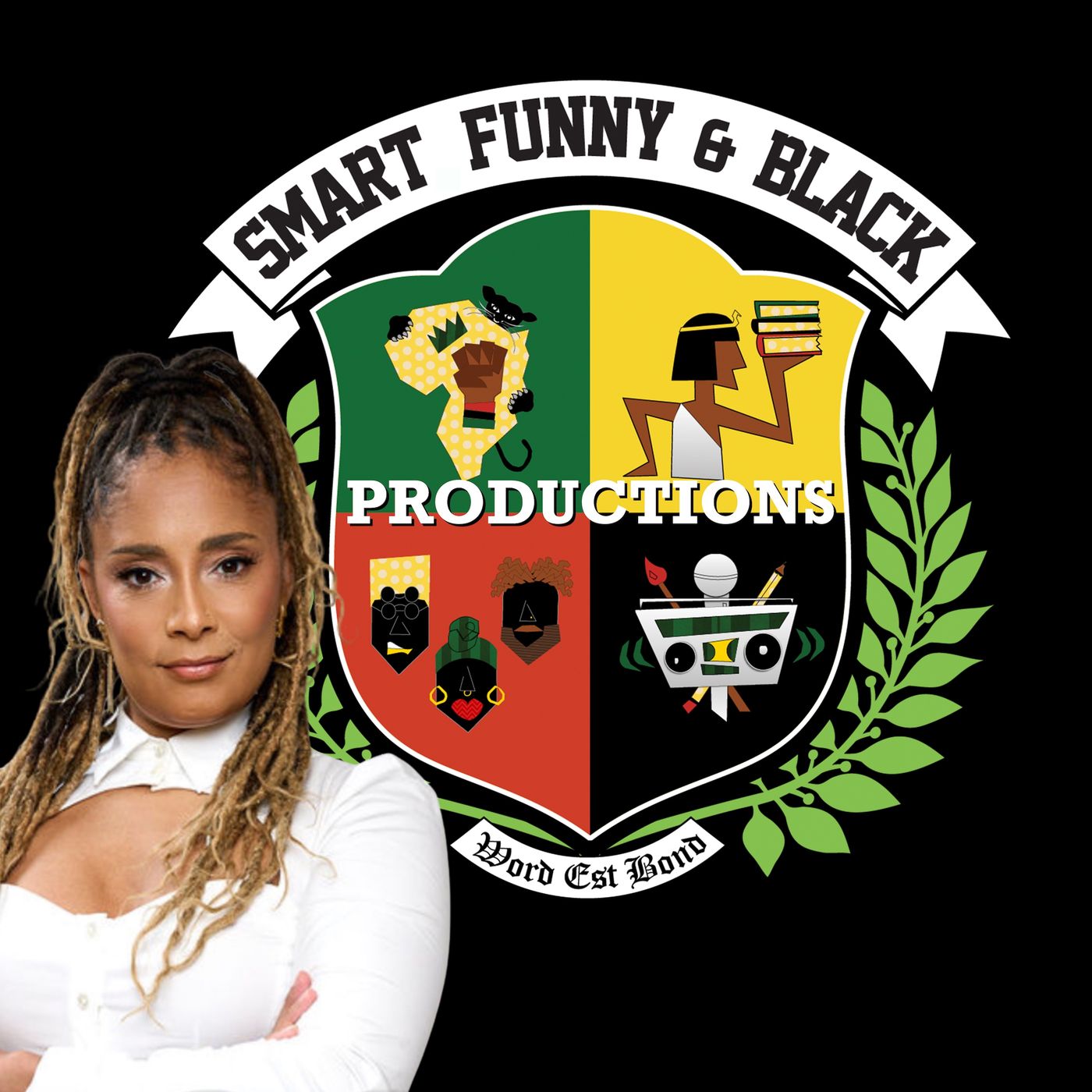
Smart Funny & Black Productions
Amanda Seales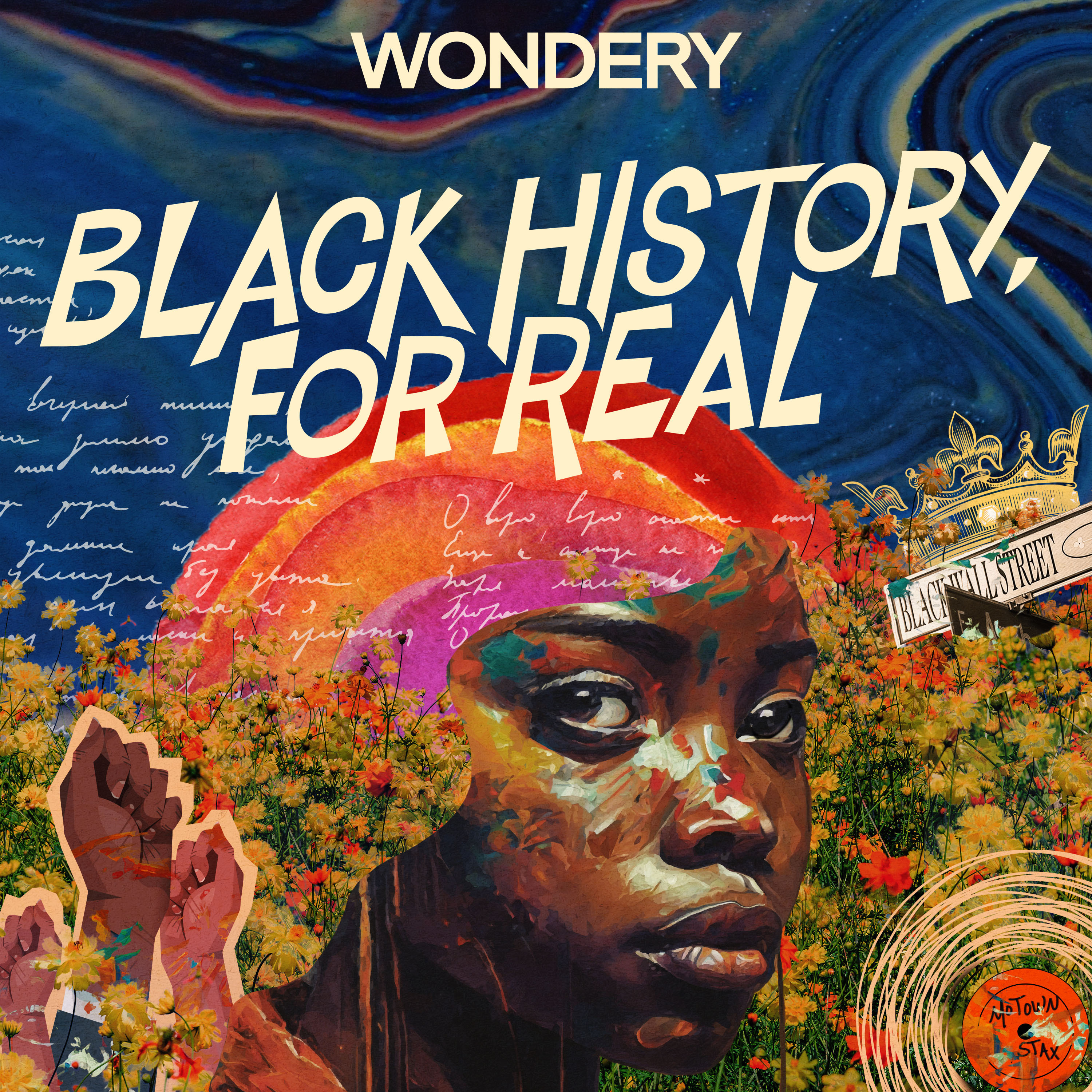
Black History, For Real
Wondery
The Mama's Den
Black Love Podcast Network
Hope & Hard Pills
Andre Henry, TRISHES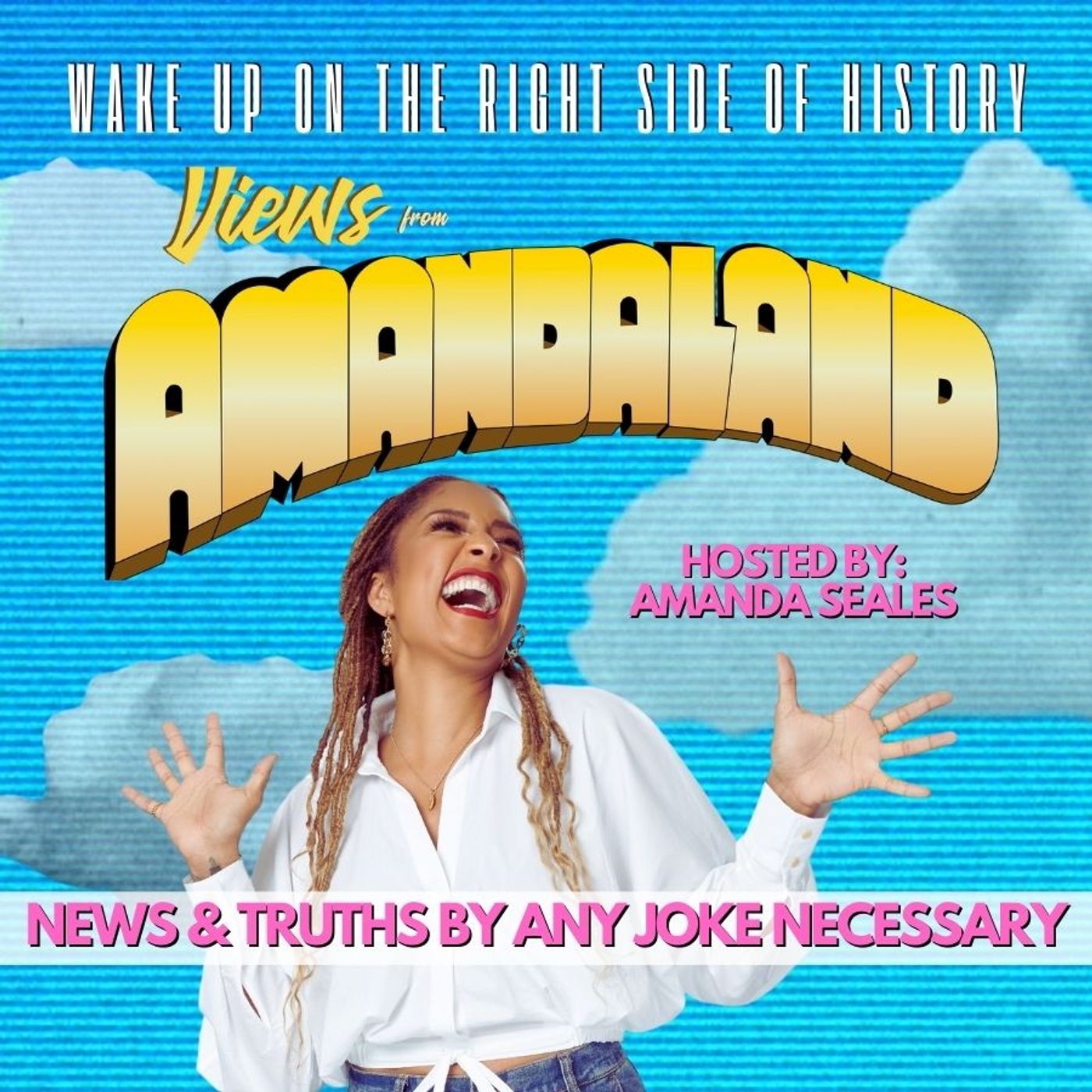
Views from AmandaLand
Amanda Seales